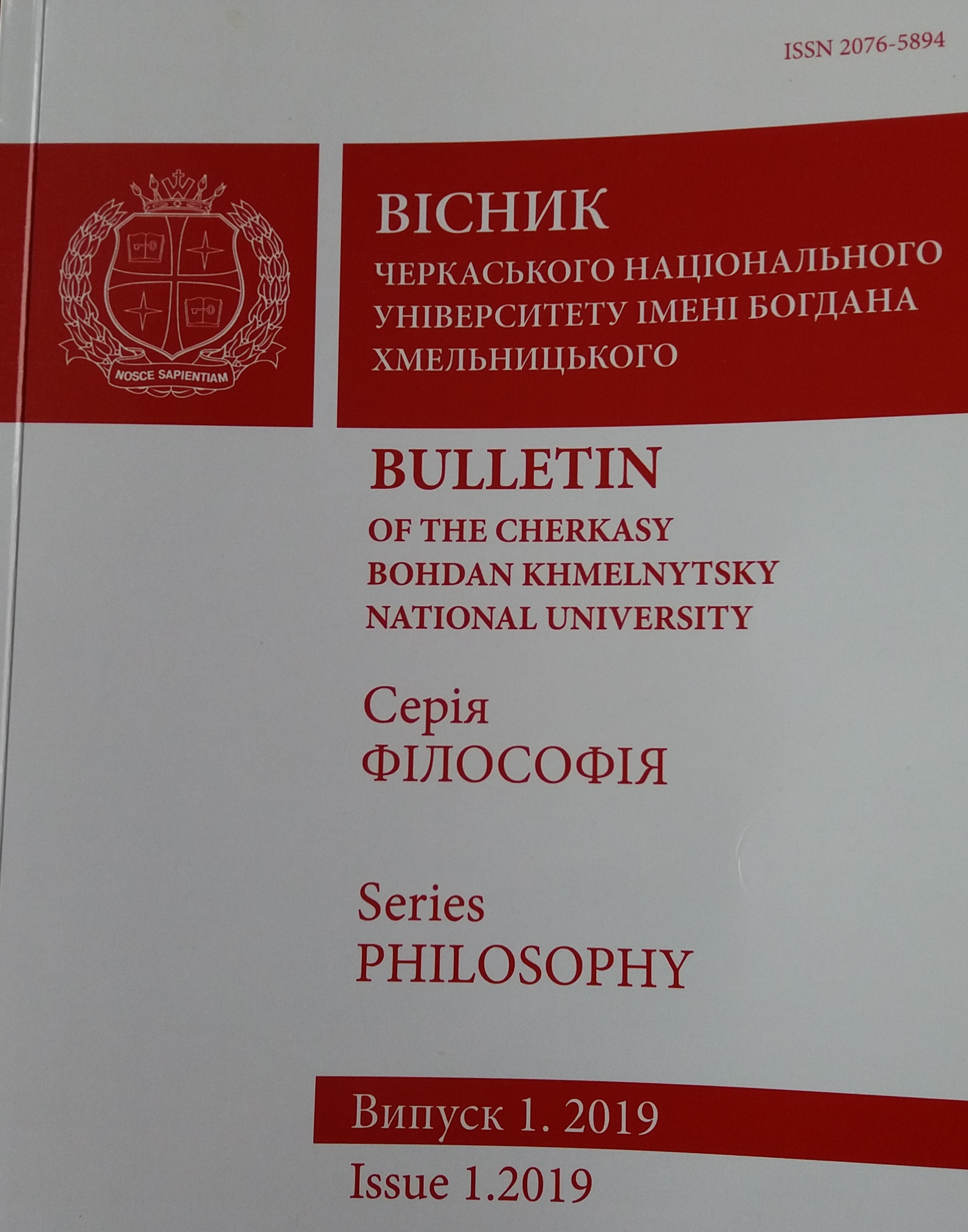THOUGHTS ON FREEDOM OF WILL IN PHILOSOPHICAL TREATISES OF CICERO
Main Article Content
Abstract
Summary. Introduction. At the stage of transition from early-Hellenistic doctrines about freedom and freedom of will to their late philosophical understanding, we cannot avoid the thoughts of the great Roman rhetorician and philosopher Marcus Tullius Cicero. His contribution to the research of this problem is not sufficiently studied and appreciated.
Purpose is to reveal the content of his views on freedom of will on the verge of the transition of ancient philosophy from the early Hellenistic to the late one, as well as on the eve of theological and religious Christian beliefs about freedom and freedom of will.
Methods are historical-logical, historical genetic as a kind of comparative historical method, reconstructive and also such rational methods of thinking as analysis and synthesis, abstraction, idealization and theoretical construction.
Results. The author of the article establishes that Cicero was the first, who informed to the world about the freedom of will. Cicero investigated how freedom and will appear in the person. He believed that behind the universe is the creator or god, who has free (ideal) intelligence and soul. God created bodies of people and inspired in these bodies individual souls. The human soul is not material and it has an ideal origin and three interrelated elements – intellectual, volitional and sensory-emotional. Cicero gave a definition of the will. To his mind, our desire and joy appear from our understanding of good, therefore, what seems to us to be a blessing becomes the goal of achieving. The desire, mastering the person, becomes a driving force in the realization of the goals and impetus to action. When desired is achieved – a person rejoices. Because according to the laws of nature, all people aspire to what they consider to be good, and avoid the opposite. Therefore, if an object seems to be a blessing, then the human nature orders to achieve it. If this desire is stable and intelligent, we call it will. So, the will is a stable and reasonable wish or desire, aspiration or appetency for good but if it is all very excited and not intelligent, then it is already lust and evil. The freedom of person according to Cicero does not mean to have everything, not to obey someone and to live as one wants. The point is in the ability to have the will to obey, if it is necessary, to manage other people, when it is a moral or state duty, not to submit to fate or other external circumstances, to do extremely useful things for everybody, despite great difficulties and danger.
Originality. The doctrine of Cicero about freedom and freedom of will has not been practically investigated by contemporary philosophers and was almost forgotten, but it had a great influence on A. Augustin, representatives of the Renaissance, French enlighteners and others.
Conclusion. It is necessary, firstly, to draw attention of philosophers to the further continuation of the study of this problem in Cicero’s philosophical heritage and, secondly, to study the influence of his views on freedom and freedom of will in defining these concepts for philosophers of the subsequent historical epochs.
Article Details
References
Grintser, N. P. (2000). Roman profile of Greek philosophy. Cicero M. T. On the limits of good and evil. Paradoxes of the Stoics, 9-38. Moscow: Russian State Humanitarian University (in Russ.)
Tatarkevych, V. (1997). History of philosophy, 1: Ancient and medieval philosophy. Lviv: Svichado (in Ukr.)
Windelband, V. (1997). History of Philosophy. Kiеv: Nika Center (in Russ.)
Mayorov, G. G. (1985). Cicero as a philosopher. M. T. Cicero. Philosophical treatises, 5-59. Moscow: Science (in Russ.)
Cicero, M. T. (1975). On Contempt for Death. Selected Works, 178-226. Moscow: Fiction (in Russ.)
Cicero, M. T. (1985). On the Nature of the Gods. Philosophical treatises, 60-190. Moscow: Science (in Russ.)
Cicero, M. T. (1974). On Old Age. On old age. On friendship. On duties, 7-30. Moscow: Science (in Russ.)
Cicero, M. T. (1975). On passions. Selected Works, 273-296. Moscow: Fiction (in Russ.)
Cicero, M. T. (1985). On Fate. Philosophical treatises, 299-316. Moscow: Science (in Russ.)
Cicero, M. T. (1974). On Duties. On old age. On friendship. On duties, 58-156. Moscow: Science (in Russ.)

